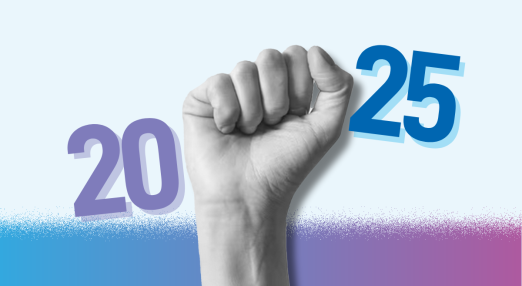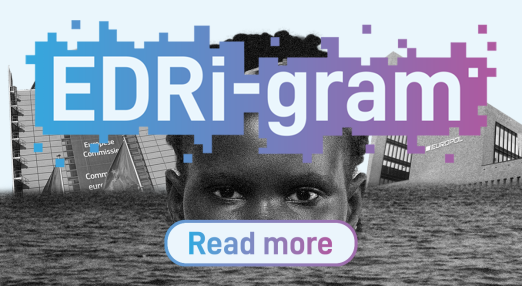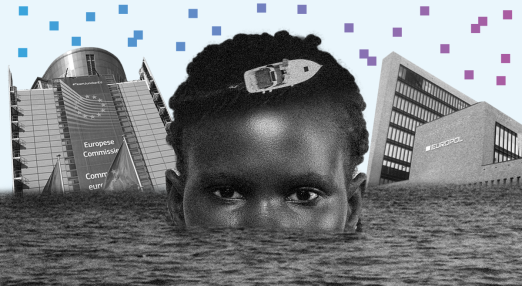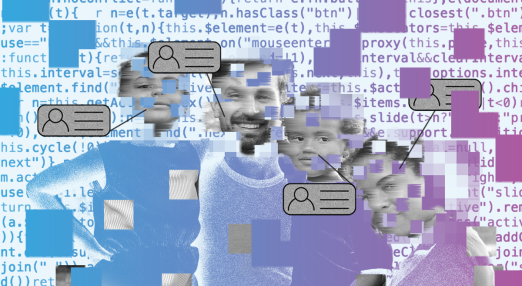Privacy and data protection
Privacy and data protection are essential for us to live, connect, work, create, organise and more. Governments and companies have long used mass surveillance for control trying to legitimise snooping for health, security or other reasons. The near-total digitisation of our lives has made it easier to control, profile and profit from our attention, data, bodies and behaviours in ways that are very difficult for us to understand and challenge. European data protection standards such as the GDPR are a good step forward but we need more to effectively ensure enforcement and protection against unlawful surveillance practices.
Filter resources
-

EDRi-gram, 21 January 2026
What has the EDRi network been up to over the past few weeks? Find out the latest digital rights news in our bi-weekly newsletter. In this edition: EDRi’s 2025 year in review, new resource to support an EU spyware ban, DSA delayed in Poland, & more!
Read more
-

EDRi launches new resource to document abuses and support a full ban on spyware in Europe
Spyware continues to spread across Europe despite years of scandals and undisputable evidence of fundamental rights violations. As the European Commission remains inactive, civil society, journalists and some lawmakers at the European Parliament are stepping up pressure for accountability. In this context, EDRi is launching a document pool to centralise resources that tracks abuse and support the growing push for a full EU-wide ban of spyware.
Read more
-

EDRi’s 2025 in review: we resisted, we persisted
As for most civil society organisations, 2025 was a tumultuous and challenging year for EDRi. Shifting political landscapes and shrinking civic space have made the work of civil society in Europe and around the world increasingly difficult for years . Yet we have nevertheless found many reasons to hope, celebrate, resist and persist.
Read more
-

Spyware Document Pool
Spyware is one of the most serious threats to fundamental rights, democracy and civic space across Europe. This document pool brings together EDRi’s analysis, advocacy, research, and curated third-party resources as part of our push for a full EU-wide ban on spyware.
Read more
-

EDRi-gram, 11 December 2025
What has the EDRi network been up to over the past few weeks? Find out the latest digital rights news in our bi-weekly newsletter. In this edition: 2025 might be almost over, but we aren’t done fighting for digital rights
Read more
-

Migrant smuggling laws: European Commission found in breach of transparency rules
The European Ombudsman has found that the Commission disregarded important transparency rules while preparing the Europol Regulation, which is a part of the legislation to "counter migrant smuggling". The inquiry concluded that the Commission didn't provide enough evidence to justify the claims of "urgency" to bypass their own 'Better Regulation' rules, and skipping public consultations, thorough impact assessments and evidence gathering.
Read more
-

How Danes je nov dan helped stop dangerous spyware in Slovenia
EDRi affiliate Danes je nov dan launched a multi-faceted campaign in response to a government proposal that would allow the Slovene Intelligence and Security Agency (SOVA) to use invasive spyware and mass surveillance tools under the guise of “national security”. By combining a satirical online tool with targeted advocacy towards lawmakers, their efforts helped generate critical pressure needed to stop the legislation from being adopted.
Read more
-

Moving past ‘Chat Control’ to solutions that truly protect kids and privacy
This article highlights evidence-based alternatives that strengthen child safety while safeguarding encryption and fundamental rights. It calls for better enforcement, more targeted tools, and meaningful support for child protection services rather than broad surveillance measures.
Read more
-

When data relate to us
The EDPS vs. Single Resolution Board judgment goes to the heart of the EU’s fundamental right to data protection, shaping how artificial intelligence, data spaces and so-called privacy-enhancing technologies (PETs) will be governed in practice. The ruling of the Court of Justice of the European Union (CJEU) arrives at a crucial time to reiterate what counts as personal data, reinforcing the importance of the protection that the GDPR was designed to guarantee.
Read more
-

EDRi-gram, 27 November 2025
What has the EDRi network been up to over the past few weeks? Find out the latest digital rights news in our bi-weekly newsletter. In this edition: Digital Omnibus rolls back rights, age verification misses the mark, data workers behind AI, & more!
Read more
-

Europe is dismantling its digital rights from within
The European Commission’s new Digital Omnibus is presented as simple “streamlining”, but in practice it dismantles key safeguards in the GDPR, ePrivacy rules and the AI Act. It would make access to device data easier, weaken limits on automated decision-making and lower protections against discriminatory AI.
Read more
-

Press Release: Commission’s Digital Omnibus is a major rollback of EU digital protections
Today the European Commission has published two Digital Omnibus proposals, reopening the EU’s core protections against harm in the digital age. This step risks dismantling the rules-based system that was hard-won over decades, endangering the very foundation of human rights and tech policy in the EU.
Read more
